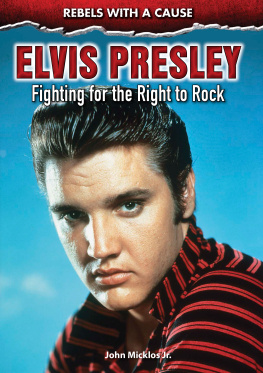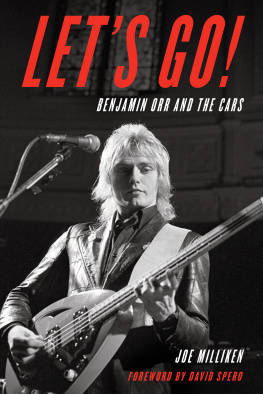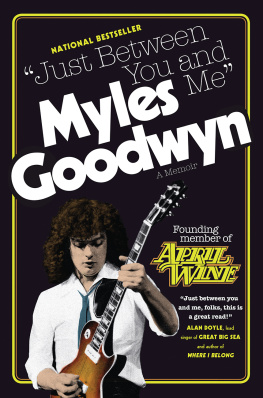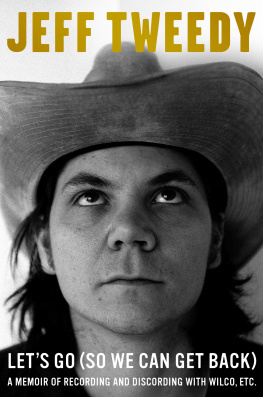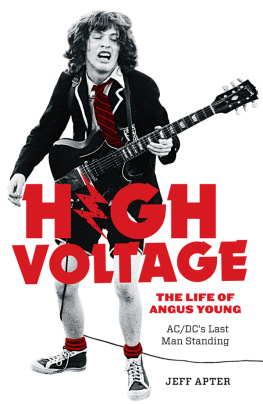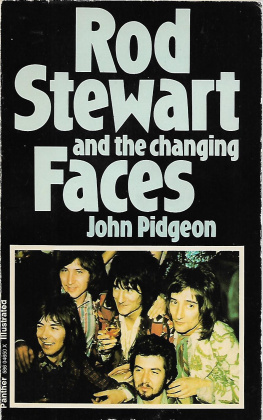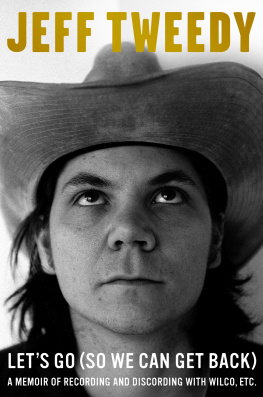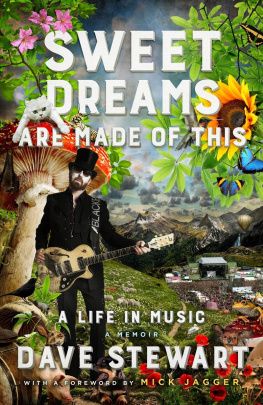Copyright 2012 by Rod Stewart
All rights reserved.
Published in the United States by Crown Archetype, an imprint of the Crown Publishing Group, a division of Random House, Inc., New York.
www.crownpublishing.com
Crown Archetype with colophon is a trademark of Random House, Inc.
Library of Congress Cataloging-in-Publication Data is available upon request.
eISBN: 978-0-307-98731-0
Photography inserts designed by Silver Square Studio; photography credits appear on
Cover design by Michael Nagin
Cover photograph by Penny Lancaster
v3.1
Contents
INTRODUCTION
In which the high-flying hero of our story gets goosed.
W e call it doing a runner, and its the best way on earth to beat the traffic after a show. At the end of the last encore, drenched with sweat, I make my final bow to the whooping, applauding crowd, then jog from the stageand keep on jogging, into the wings, where someone drapes a towel around me as I pass. In the hall, the lights stay down and the crowd continues to call for a third encore. But Im off down the fluorescent-lit backstage corridors, where the air is suddenly cool after the heat of the stage, and out through the service doors at the back of the arena, into a waiting car, the noise of the clapping and stamping receding behind me, until the clunk of the limo door seals it out completely and the car sweeps me away.
Away, on this one night in particular, in July 1995, to an airstrip near Gothenburg, and a waiting private plane. A change of clothes is ready for me in the limo and I wriggle into them as we drive. Behind me, 30,000 hollering Swedish fans. Ahead of me, a short flight to London, in the company of a few members of my team who were also primed to do a runner at the shows end. The Spanner in the Works tour kicked off in June and is scheduled to run until May the following year, but there is a window in the schedule and Im heading home.
And this is always the moment, with my feet outstretched as the plane picks up speed and lifts off the runway, when I finally relax, allow the adrenaline of the previous two hours to settle, enjoy the prospect of a night in my own bed, and anticipate the meal that the cabin crew will soon prepare, the glass of cold white wine that will go with it, and the satisfaction at the end of a days work.
Except that this time
Thump!
What the hell was that?
We are hardly into our ascent when there is an almighty wallop on the left-hand side.
Was that the wing?
The plane banks sharply, then gradually levels.
Whats happening?
Startled rigid in my seat, I look around the cabin at the faces of the people with me, seeking comfort. Next to me, my great mate Alan Sewellsolid, dependable Big Al, a secondhand car dealer by trade and a gentleman of ample proportions, often mistaken for a bodyguard at my sidehas turned white and is about to begin shaking like jelly.
Opposite, Annie Challis, part of my managers team, gives me a reassuring look and says, Im certain its nothing, darling. But that reassuring look seems to be costing her some effort, which kind of removes the reassurance from it.
Meanwhile, near Annie sits my beloved and all-knowing manager, Arnold Stiefel, engrossed in the latest issue of Architectural Digest. As he continues to turn the pages, Arnold alone seems unperturbed, although I notice he is sniffing the air rather quizzically. Seconds later he blithely declares, It smells just like Thanksgiving.
Its true. A strangely wholesome smell of roasting fowl has begun to pervade the cabin. Odd time to start heating up my meal, surely.
No time to worry about that. The pilot speaks to us from the deck. Were going back to the airport. He sounds relaxed enough. But they always do, dont they? Thats what theyre paid for.
The minutes that follow, in which the plane haltingly turns and readies itself to descend, hang heavily. Big Al continues to tremble. Annie continues to look unreassuringly reassuring. Arnold has discarded both his magazine and his confident demeanor and is intensely studying the in-case-of-emergency laminated card, as if in preparation.
Now, in a flood of cold fear, I begin to wonder: Is this it? Is this where my number finally comes up? True, my life has been a full onemore spectacular and privileged and colorful than I would have dared even dream, with adventures and wealth and love beyond my sharebut even so, is this how it all ends: in the arms of Big Al, in a field in Sweden?
Through the window of the plunging plane, I notice that the runway has been covered in foam and the perimeter of the airfield is alive with the blinking lights of emergency vehicles.
But I somehow keep it together. I rein it in and remain calm and in control. If it must be, then so it must be. Its all right, I say, in a quiet voice. Then, slightly louder, Its all right. Then in a kind of half-shout, Its all right! Then, finally, in a shrill and rising scream, Its all right!

I t was all right. A bird strike, apparently. One unlucky member of a passing flock of geese, sucked into the engine. The bird was ruined, and so, too, was the engine. Good thing the plane had another one and was able to land. It wouldnt have been the first time in my long and distinguished career that I had handed the tabloids a gift-wrapped headline: Rod Cooks His Goose.
And luck within luck. After we had driven back to the hotel where the band were staying, and joined them in the bar for several stiff drinks and some dramatic reenactments of the incident, I learned that, only the previous day, our pilot had attended a refresher course on controlling a plane in the event of an engine loss.
Kind of sums up my life, really. An awful lot of the way, its been a long, luxury aircraft ride. But just occasionally the plane flies into a goose.
And somehow, every time it does, I get lucky and live to tell the tale.
CHAPTER 1
In which our hero is born, just over six years of global conflict ending shortly thereafter; and in which he goes to school and develops, peculiarly enough, an intense loathing for singing in public.
O bviously I was a mistake. Definitely some kind of oversight in the family-planning department. An unforced error, they might call it in tennis. Otherwise, explain why Bob and Elsie Stewart, at forty-two and thirty-nine, with four children to feed, the youngest of them already ten, would suddenly take it into their heads to produce another baby. Furthermore, explain why they would do this in the middle of the Second World War.
Hence, eventually, the family joke: Roddy was Dads slipup. But, as Dads slipups go, a fairly lucrative one.
I cant say I was ever made to feel like a mistake, though. On the contrary, despite my late arrival (or perhaps because of it) I seemed to be welcomed very warmlyby the six members of my immediate family, at any rate. Less so by Hitler. My point of entry into the world, on the evening of January 10, 1945, was a small bedroom on the top floor of a terraced house on the Archway Road in north London whose windows had been blown out so many times by the aftershock of exploding bombs from Germany that my dad had cut his losses and boarded them up.


